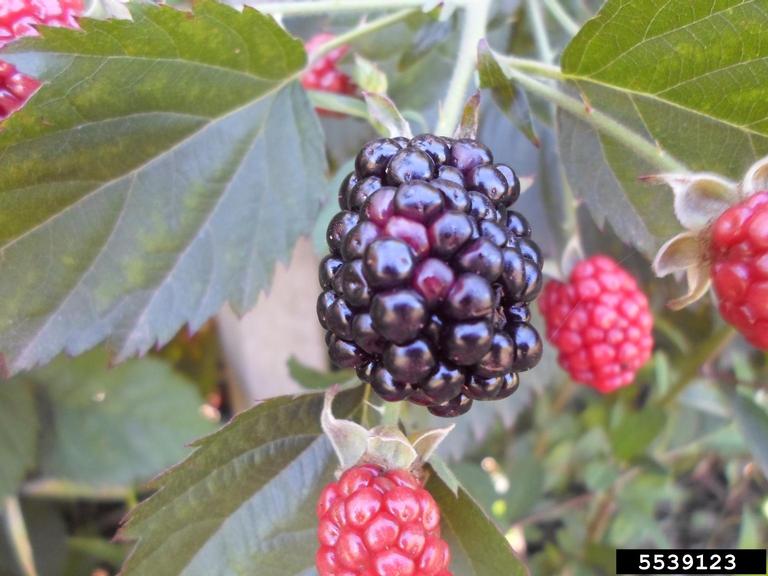Crop Production

There are some relatively new types of blackberry plants called primocane fruiting blackberries. These plants may be a good option for those wanting to try growing blackberries on a small scale. However, these primocane fruiting blackberries should be planted on a trial basis in Alabama.
What’s the difference?
The root system of blackberry plants is perennial but the canes are biennial. The primocanes are first-year canes that grow from the root system each spring. These primocanes grow but usually do not bloom in the first year. In their second year, the name of primocanes changes to floricanes. These floricanes do bloom and set fruit. After fruiting, the floricanes will soon begin to wilt and die. While the floricanes are flowering and fruiting, the new primocanes begin to grow.
As their name implies, primocane fruiting blackberry plants do set flower buds, bloom, and make fruit in the first year (during the primocane stage). You cannot treat the primocane fruiting blackberry like an annual plant, where you cut it down after one year’s growth. The second-year floricanes will bloom and make a crop the following year. Keep in mind that the primocane fruit ripens when the temperatures are much higher, and the fruit quality may not be as desirable as the floricane-produced fruit is. Temperatures in the 90s can reduce fruit quality and production.
Cultivars
The first primocane fruiting blackberry cultivars were released in 2004 and were named ‘Prime-Jim’ and ‘Prime-Jan’. Since then, several other primocane fruiting blackberry cultivars have been released, including ‘Prime-Ark 45’, ‘Prime-Ark Freedom’, ‘Prime-Ark Traveler’, ‘Stark Black Jim’, and ‘Baby Cakes’. All of these are erect types, and of these, ‘Prime-Ark Freedom’, ‘Prime-Ark Traveler’, Stark Black Jim’, and ‘Baby Cakes’ are thornless. It is recommended to try any of these on a small scale before planting large acreage, because, again, they do not like the heat of summer. Of these listed, ‘Baby Cakes’ has a compact growth habit and might make a good potted plant for a deck or patio.
More Information
The Alabama Cooperative Extension System publication, “Commercial Production Guide: Blackberry & Raspberry” is filled with great production information. You can find that resource at www.aces.edu. If you have any questions on blackberry production, give your local Extension office a call.
Photo credit: Jonas Janner Hamann, Universidade Federal de Santa Maria (UFSM), Bugwood.org

